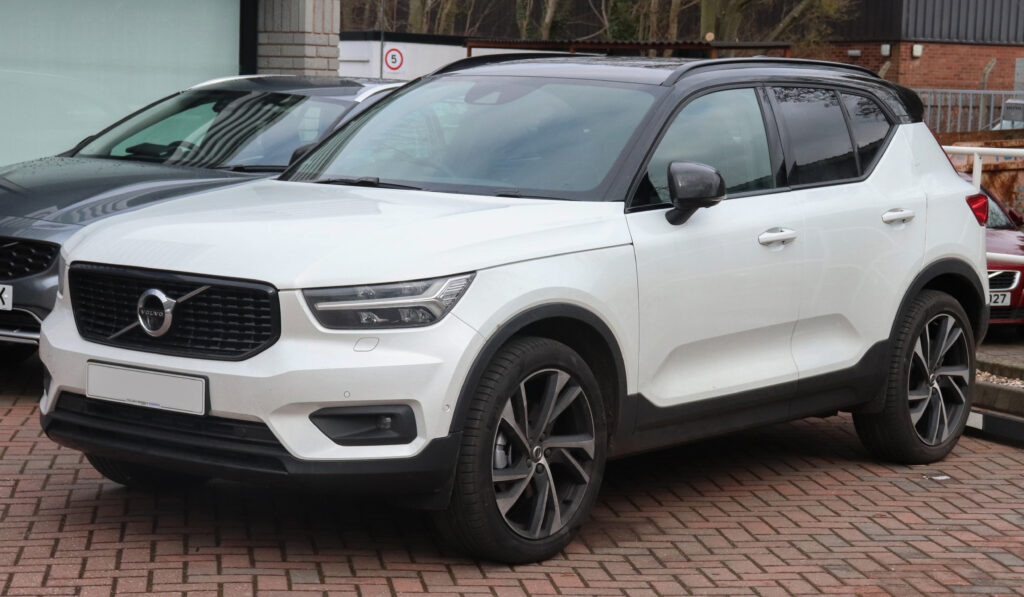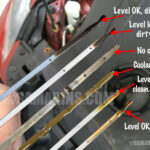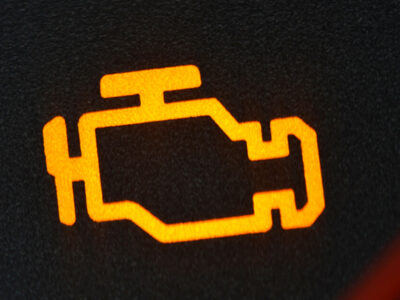
Volvo XC40 Tyre Pressure Reset & TPMS Troubleshooting Guide (2015–2025)

Maintaining the correct tyre pressure in your Volvo XC40 is essential not just for fuel efficiency and performance but also for safety and tyre longevity. The Tyre Pressure Monitoring System (TPMS) in the XC40 ensures that you are immediately alerted when pressure levels fall below the recommended range. However, occasional false alerts, system resets, or tyre changes can trigger the TPMS light unnecessarily. In this comprehensive guide, we’ll explain exactly how to reset the system, what causes warnings, and how to ensure your XC40’s TPMS performs flawlessly.
- Step-by-Step Guide to Reset the Volvo XC40 Tyre Pressure Monitoring System (TPMS)
- What Triggers the Volvo XC40 Tyre Pressure Light
- How the Volvo XC40 Indirect TPMS Works
- Common Volvo XC40 TPMS Problems
- Why the Tyre Pressure Light Stays On When Tyres Are Fine
- What To Do If the TPMS Light Won’t Turn Off
- Volvo XC40 Tyre Size and Recommended Pressure Chart
- Frequently Asked Questions
- Maintenance Tips to Prevent TPMS Issues
- Final Thoughts
Step-by-Step Guide to Reset the Volvo XC40 Tyre Pressure Monitoring System (TPMS)
Step 1 – Start the Engine
Begin by starting your Volvo XC40 or turning the ignition to the RUN position (press the start button twice without pressing the brake). This activates all onboard systems.
Press the Settings button located directly under the information display screen on the dashboard.
Step 3 – Swipe the Display
Swipe the central touchscreen sideways until the full list of menu options appears.
Step 4 – Open “Car Status”
From the menu options, select Car Status. This section contains diagnostic information about your XC40’s condition, including tyres and service messages.
Step 5 – Select “TPMS”
On the left side of the display, select TPMS (Tyre Pressure Monitoring System).
Step 6 – Choose “Store Pressure”
Tap Store Pressure. The system will display a message prompting you to confirm that all four tyres have been checked and inflated to the correct pressure.
Step 7 – Confirm the Process
Press OK to confirm. The screen will then display:
“Tire Pressure Monitor – Storing pressure is in progress and will finalize automatically.”
Once complete, the TPMS will recalibrate and the warning light should turn off after a short drive.
What Triggers the Volvo XC40 Tyre Pressure Light
Low Tyre Pressure
The TPMS light activates when one or more tyres fall below the recommended PSI/kPa. Regular pressure checks are crucial, especially before long trips.
You may be interested in reading Volvo XC40 (2019–2025): How to Check the Engine Oil Level
Volvo XC40 (2019–2025): How to Check the Engine Oil LevelMixed Tyre Brands or Sizes
Volvo’s TPMS relies on wheel speed sensors. If your XC40 has mismatched tyres—different brands, models, or tread depths—the system may interpret this as a pressure discrepancy.
Uneven Weight Distribution
Carrying heavy loads on one side or towing can alter wheel rotation speeds, causing the TPMS to trigger.
Sudden Weather Changes
A temperature drop of just 10°C (18°F) can reduce tyre pressure by 1 PSI. Seasonal transitions often cause the TPMS light to illuminate temporarily.
Spare Tyres or Snow Chains
Using a compact spare tyre or snow chains can confuse the indirect TPMS system and generate false alerts.
How the Volvo XC40 Indirect TPMS Works
The Volvo XC40’s TPMS is an indirect system, meaning it doesn’t use individual tyre pressure sensors. Instead, it monitors wheel rotation speeds through ABS sensors to detect pressure changes.
Wheel Speed Sensors
Each wheel’s speed sensor measures its rotation rate. When one tyre spins faster than the others, the system interprets it as being underinflated (because a low-pressure tyre has a smaller diameter).
Real-Time Data Comparison
The system continuously compares wheel speed data while driving. If a consistent difference appears, the TPMS light is triggered.
System Limitations
Because it operates indirectly, the TPMS only works when the vehicle is moving. It cannot provide real-time pressure readings like direct systems do. Therefore, it’s essential to manually check tyre pressures regularly.
Common Volvo XC40 TPMS Problems
False Alerts
Incorrect readings often occur after tyre changes, rotations, or inflation adjustments if the system isn’t recalibrated. Always perform a TPMS reset after any tyre-related service.
Sensor Misinterpretation
If the wheel speed sensors become dirty or damaged, they can send incorrect data, triggering the warning light even when tyre pressures are normal.
You may be interested in reading Volvo XC40 (2019–2025): How to Check the Engine Oil Level
Volvo XC40 (2019–2025): How to Check the Engine Oil Level Volvo XC40 Windshield Replacement Cost: Complete Guide for Owners in 2025
Volvo XC40 Windshield Replacement Cost: Complete Guide for Owners in 2025Unresponsive TPMS Reset
If the light remains on after resetting, the calibration process might not have completed correctly. Driving continuously for 5–10 minutes at moderate speed usually helps the system finalise recalibration.
Why the Tyre Pressure Light Stays On When Tyres Are Fine
Volvo’s indirect TPMS is extremely sensitive to differences in tyre size and rotation. If you have a mix of brands or uneven tread wear between axles, the system might interpret this as low pressure. To avoid unnecessary warnings, ensure:
- All four tyres are identical in brand, model, and size.
- Each tyre is inflated to Volvo’s recommended PSI levels.
- Tyres are rotated every 8,000–10,000 miles to maintain even wear.
What To Do If the TPMS Light Won’t Turn Off
Follow this procedure if your tyre pressures are correct but the warning light remains on:
- Overinflate all four tyres by 8–10 PSI.
- Drive the vehicle for 5–10 minutes.
- Reduce each tyre to the recommended pressure (see table below).
- Drive again for another 5–10 minutes.
- Perform the TPMS reset process as described earlier.
This method forces the system to recalibrate its reference values, clearing false alerts.
Volvo XC40 Tyre Size and Recommended Pressure Chart
| Tyre Size | Front PSI / kPa | Rear PSI / kPa |
|---|---|---|
| 235/45R20 | 41 / 282 | 42 / 289 |
| 235/50R19 | 41 / 282 | 42 / 289 |
| 235/55R19 | 33 / 227 | 33 / 227 |
| 235/55R18 | 33 / 227 | 33 / 227 |
Always measure tyre pressure when the tyres are cold for the most accurate reading.
Frequently Asked Questions
Can I Disable the Volvo XC40 TPMS?
No. For safety and compliance reasons, the TPMS cannot be turned off.
Is It Safe to Drive with the Tyre Pressure Light On?
No. Driving with low tyre pressure affects braking, handling, and fuel efficiency. Stop, inspect, and adjust tyre pressure immediately.
Can Weather Changes Trigger the TPMS?
Yes. Cold weather reduces tyre pressure, while heat increases it. Check pressures monthly or during significant temperature shifts.
How Far Can I Drive with the TPMS Light On?
Avoid prolonged driving with the TPMS light illuminated. Find and fix the issue as soon as possible to prevent tyre damage.
What If a Wheel Speed Sensor Fails?
A failed wheel speed sensor can trigger multiple lights: TPMS, ABS, and traction control. In this case, diagnostic testing and replacement are required.
You may be interested in reading Volvo XC40 (2019–2025): How to Check the Engine Oil Level
Volvo XC40 (2019–2025): How to Check the Engine Oil Level Volvo XC40 Windshield Replacement Cost: Complete Guide for Owners in 2025
Volvo XC40 Windshield Replacement Cost: Complete Guide for Owners in 2025 Tesla Model Y Dimensions (2025): Complete Guide to Size, Weight, Boot Space, and Interior
Tesla Model Y Dimensions (2025): Complete Guide to Size, Weight, Boot Space, and InteriorMaintenance Tips to Prevent TPMS Issues
- Check tyre pressure every 30 days or before long trips.
- Recalibrate the TPMS after rotations, replacements, or inflation changes.
- Use OEM tyre sizes and matching brands for consistent readings.
- Avoid ignoring the TPMS warning light; it’s your first line of defence against unsafe tyre conditions.
Final Thoughts
The Volvo XC40 Tyre Pressure Monitoring System is a smart yet sensitive safety feature. Proper tyre maintenance, consistent calibration, and attention to system messages ensure optimal performance and peace of mind. By understanding how the TPMS works and how to reset it effectively, you can avoid unnecessary alerts, maintain fuel efficiency, and keep your XC40 running smoothly on every journey.
If you want to know other articles similar to Volvo XC40 Tyre Pressure Reset & TPMS Troubleshooting Guide (2015–2025) you can visit the category Service and Parts.
Leave a Reply







More content of your interest